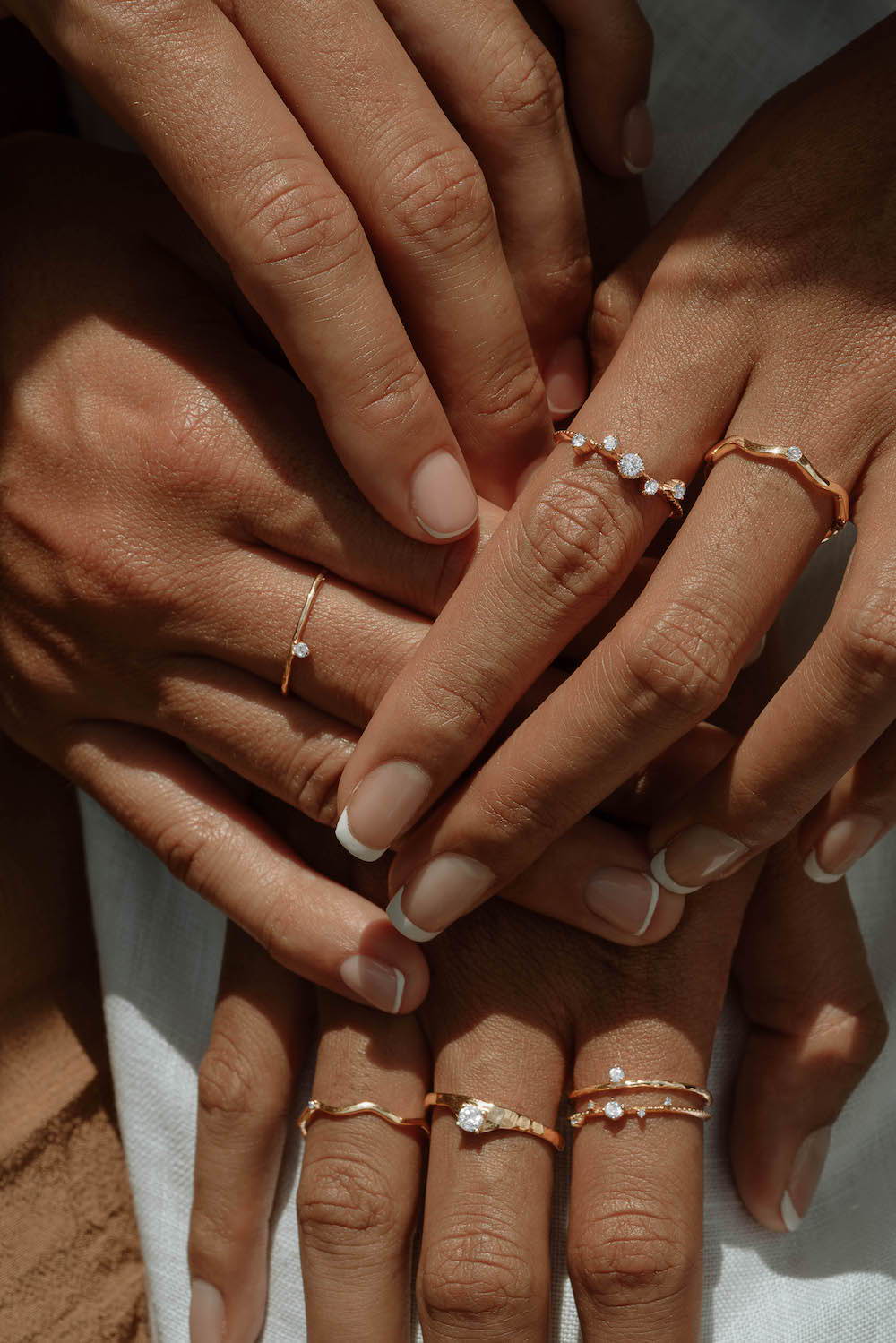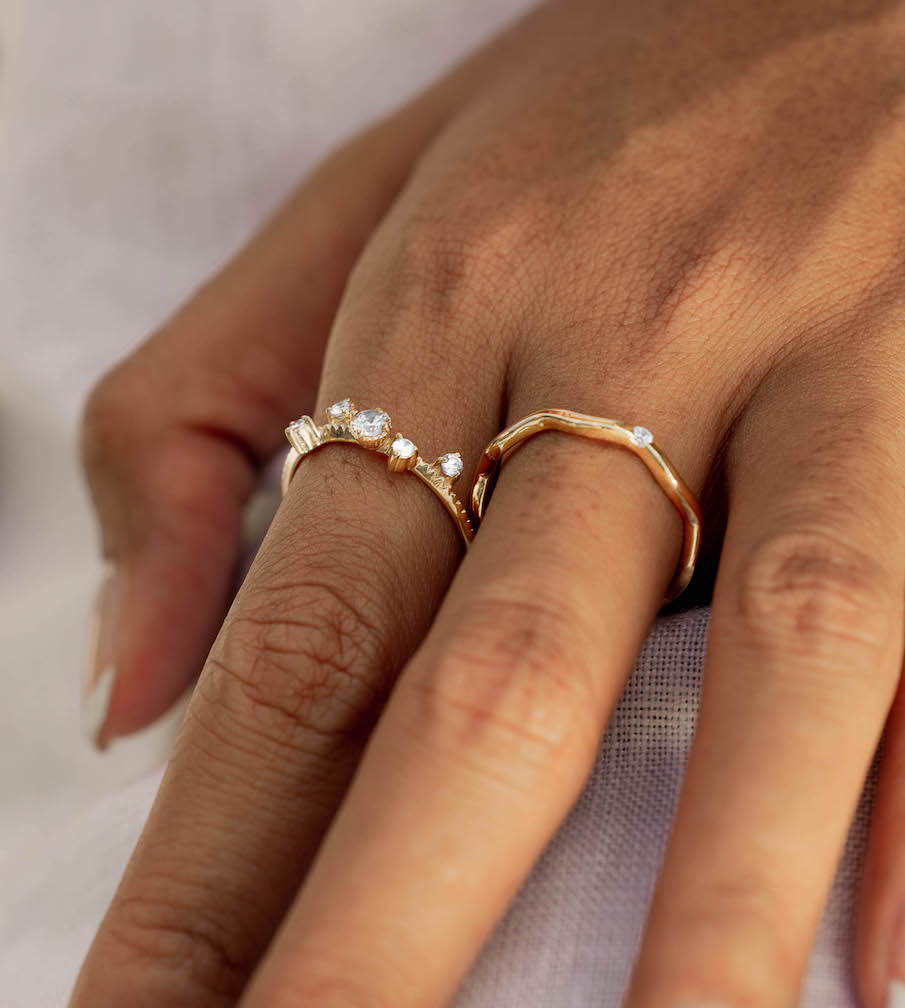“As consumers, we have so much power to change the world by just being careful in what we buy”
Emma Watson
Emma Watson for Vogue Australia © Vogue Australia
The ever growing concern for the climate shows that our attitude towards consumption is shifting in support of making positive changes for the future.
“Veganism is now a trend that extends far beyond food choices and affects all aspects of consumer habits.
Fashion brands and retailers are taking note as a more conscious shopper continues to emerge”.
In today’s society, more consumers are looking for sustainable and eco-friendly options when it comes to fashion. This includes vegan alternatives for clothing, shoes, jewellery and cosmetics. As Veganism continues to go mainstream, vegan fashion and ethical brands are expected to see increased growth.
The vegan movement today
The global interest in veganism increased sevenfold in the last five years. Going vegan is largely related to food and diet - but it also extends to every area of our daily lives. This includes the clothes we wear and the products we use in our home. In fact, the vegan fashion industry is booming! “Innovations in plant-based and eco-friendly materials, paired with raised consumer awareness, are the driving engines behind the change in the fashion industry”.
Veganism is certainly at an all time high, with consumers searching for sustainable and cruelty-free alternatives, in every area of their lifestyle. It is not surprising that vegan jewellery is thus gaining momentum in popularity. Today - Two-thirds of 16 to 24 year-olds said they were trying to make more ethical choices than a year ago.
Are there any animal products used in jewellery?
All animal by-products and all products tested on animals are not vegan. Businesses are required to examine every material used in a product, including ingredients such as glues, dyes and waxes. “Vegan fashion includes clothes, shoes and accessories that contain no leather, fur, wool, skin, exotic skins or any other animal-derived fabric”.
There are an array of non-vegan products that can be used in the jewellery design:
Insects
Bees and butterflies encased in resin. Jewellery produced from insects is not considered vegan.
Cuttlefish, sea shells & pearls
Can be used to create jewellery and in the design creation process. Taking shells from the ocean is not sustainable and is not considered vegan.
Leather
Commonly used in the production process in the workshops of metalsmiths from rawhide mallets, leather aprons, gloves and finger protectors and leather skins under their benches.
"Apart from" the animal rights activists advocating against leather, researchers are very concerned about the environmental hazards the chemicals used in leather production create: “horrible for the environment, industry workers, and those living nearby the tanneries”.
Beeswax
Used as resin in the jewellery making process. Can be swapped for soy-based wax, coconut oils, plant-based alternatives.
Bones, skin hide, or fur
Can be used to create jewellery and may include animal fur, animal teeth such as crocodile or shark. These should be avoided to protect animal rights. Faux fur and eco-friendly alternatives are widely available.
Animal fat
Can be used to polish jewellery in the form of a paste. It can be swapped for a vegan-based polishing paste.
Did any of the listed products surprise you? This highlights the importance of promoting a transparent supply-chain.
Activists, ethical fashion designers and leading climate change specialists are campaigning to remove animal products entirely from the industry, and as veganism grows throughout the world, many fashion brands are now changing direction to create sustainable and vegan options.
What about mining?
A long-standing concern within the jewellery sector, when it comes to ethics and sustainability, is the fair sourcing and production of materials, especially precious metals and gemstones.
Indeed, mining displaces and destroys the ecosystem and land habitats of animals. Indeed, when the earth is excavated to extract diamonds or gold, for instance, wildlife has to find somewhere else to live, if it can. In most situations, wildlife purely disappears. For this reason, many vegan advocates do not consider products that come from mining to be in line with the vegan ethos.
Mine waste destroying wildlife.
What does vegan jewellery mean?
Vegan Jewellery is that which is manufactured, crafted and distributed without the use of any animal-based derivatives and therefore does not cause harm to animals and their environment.
What can be considered as vegan jewellery?
Vegan leather
The vegan leather industry is set to reach $85 billion by 2025 due to the demand from consumers who are more aware of the conditions that are needed to manufacture leather from animals. We can expect to see a continued increase in the availability of vegan fashion alternatives and thankfully many cruelty-free options already exist.
Lab-grown diamonds
Lab-grown diamonds can be viewed as vegan because they are man-made in a laboratory and thus do not contribute to the displacement of animals, the pollution of waterways or the toxic emissions of chemicals into the atmosphere. Land-mined diamonds are widely considered as ‘not vegan’ due to the harm traditional mining brings to the land and animals in the excavation process.

Recycled materials
Recycled Gold is a great alternative to newly mined materials. Traditional forms of gold mining have a significant impact on local wildlife; both on land and at sea. For this reason, gold is thought as a non-vegan material. Recycled gold jewellery is a preferred and sustainable choice.

So why does the jewellery we buy matter?
The jewellery we buy matters because it could contribute to global warming through mining, to animal abuse, excessive pollution...
It is our responsibility, not only as a brand but also as consumers and earth inhabitants to move towards a more ethical, compassionate and sustainable way of sourcing, producing and consuming.
At Scéona, respect for the environment and the living beings has always been at the heart of what we do. By using only lab-grown diamonds and recycled gold, we ensure that the jewellery we make does not harm others but we are not perfect though: the polish paste that our workshops use is not vegan.
There is always a way to improve our practice in the near future. We also call for more transparency in the jewellery industry to avoid any used animal by-products. We hope this will become the new normal in the near future.
